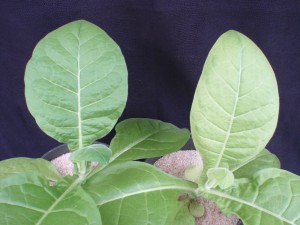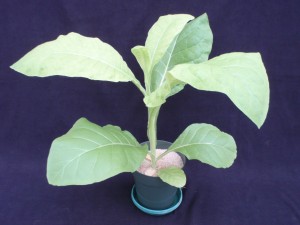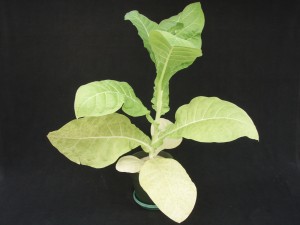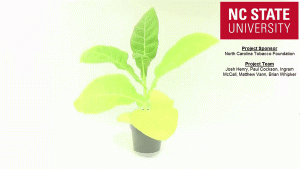From the Field-Agronomy Notes
go.ncsu.edu/readext?422026
en Español / em Português
El inglés es el idioma de control de esta página. En la medida en que haya algún conflicto entre la traducción al inglés y la traducción, el inglés prevalece.
Al hacer clic en el enlace de traducción se activa un servicio de traducción gratuito para convertir la página al español. Al igual que con cualquier traducción por Internet, la conversión no es sensible al contexto y puede que no traduzca el texto en su significado original. NC State Extension no garantiza la exactitud del texto traducido. Por favor, tenga en cuenta que algunas aplicaciones y/o servicios pueden no funcionar como se espera cuando se traducen.
Português
Inglês é o idioma de controle desta página. Na medida que haja algum conflito entre o texto original em Inglês e a tradução, o Inglês prevalece.
Ao clicar no link de tradução, um serviço gratuito de tradução será ativado para converter a página para o Português. Como em qualquer tradução pela internet, a conversão não é sensivel ao contexto e pode não ocorrer a tradução para o significado orginal. O serviço de Extensão da Carolina do Norte (NC State Extension) não garante a exatidão do texto traduzido. Por favor, observe que algumas funções ou serviços podem não funcionar como esperado após a tradução.
English
English is the controlling language of this page. To the extent there is any conflict between the English text and the translation, English controls.
Clicking on the translation link activates a free translation service to convert the page to Spanish. As with any Internet translation, the conversion is not context-sensitive and may not translate the text to its original meaning. NC State Extension does not guarantee the accuracy of the translated text. Please note that some applications and/or services may not function as expected when translated.
Collapse ▲Tobacco Research Update: Sulfur Deficiency of Tobacco
In this tobacco research update, we highlight the symptoms of sulfur deficiency. These images are part of a project supported by the North Carolina Tobacco Foundation to develop a web-based diagnostic key for the identification of nutrient disorders of tobacco.
Sulfur (S) deficiency can easily be mistaken for nitrogen (N) deficiency in tobacco. The ability to distinguish between the two is very important to properly diagnose the symptoms associated with this nutritional disorder.
Sulfur deficiency in tobacco begins as an overall chlorosis of the foliage (Fig. 1). This symptom differs from N deficiency in the fact that the yellowing begins in the central foliage and works its way up the plant (Fig. 2). The chlorosis that occurs with N deficiency starts distinctly on the bottom foliage and symptoms progress sequentially up the leaves.

Figure 1. The initial symptoms of S deficiency include an overall chlorosis of the center foliage. These symptoms may be compared with the healthy plant on the left.
©2016 Forensic Floriculture

Figure 2. The symptoms of sulfur deficiency can be seen moving up the plant from the center foliage. This may help one in distinguishing between sulfur deficiency and nitrogen deficiency, which occurs first on the lower foliage.
©2016 Forensic Floriculture
As S deficiency progresses, symptomatic leaves become more chlorotic, and the chlorosis spreads throughout more of the foliage (Fig 3.). These intermediate symptoms may include a mild stunting when compared to a healthy plant, but this stunting is not nearly as prominent as with N deficiency. It becomes easier to distinguish between S and N deficiency symptoms as the symptoms reach this intermediate stage. Sulfur deficiency is accompanied by a vibrant and uniform yellowing, while N deficiency symptoms display a lighter, bleached yellowing that is more pronounced on the lower leaves.

Figure 3. The intermediate symptoms of sulfur deficiency may be seen here in the form of overall chlorosis
©2016 Forensic Floriculture
Advanced symptoms occur on nearly all of the vegetative tissue, including the stems. This overall chlorosis may be observed in the 360-degree image below (Fig. 4).

Figure 4. The 360-degree view of this symptomatic plant with a severe sulfur deficiency may be viewed by clicking on the above picture.
©2016 Forensic Floriculture
We would like to express our appreciation to the North Carolina Tobacco Foundation for supporting this project. We will be providing updates as symptoms progress over the course of the nutrient disorder induction phase of the experiment.
Key Contact: Dr. Matthew Vann, Department of Crop and Soil Science, mcvann@ncsu.edu
Contributing Authors: Josh Henry, Paul Cockson, Matthew Vann, and Brian Whipker
Funding Source: North Carolina Tobacco Foundation
Project Team: Josh Henry (NC State M.S. student in Horticultural Science), Paul Cockson (NC State B.S. student in Agroecology), Ingram McCall (Research Technician in Horticultural Science), Rhonda Conlon (Extension IT at NC State), Matthew Vann (Tobacco Extension Specialist, Dept. of Crop and Soil Science), and Brian Whipker (Professor of Floriculture and Plant Nutrition in Horticultural Science).


